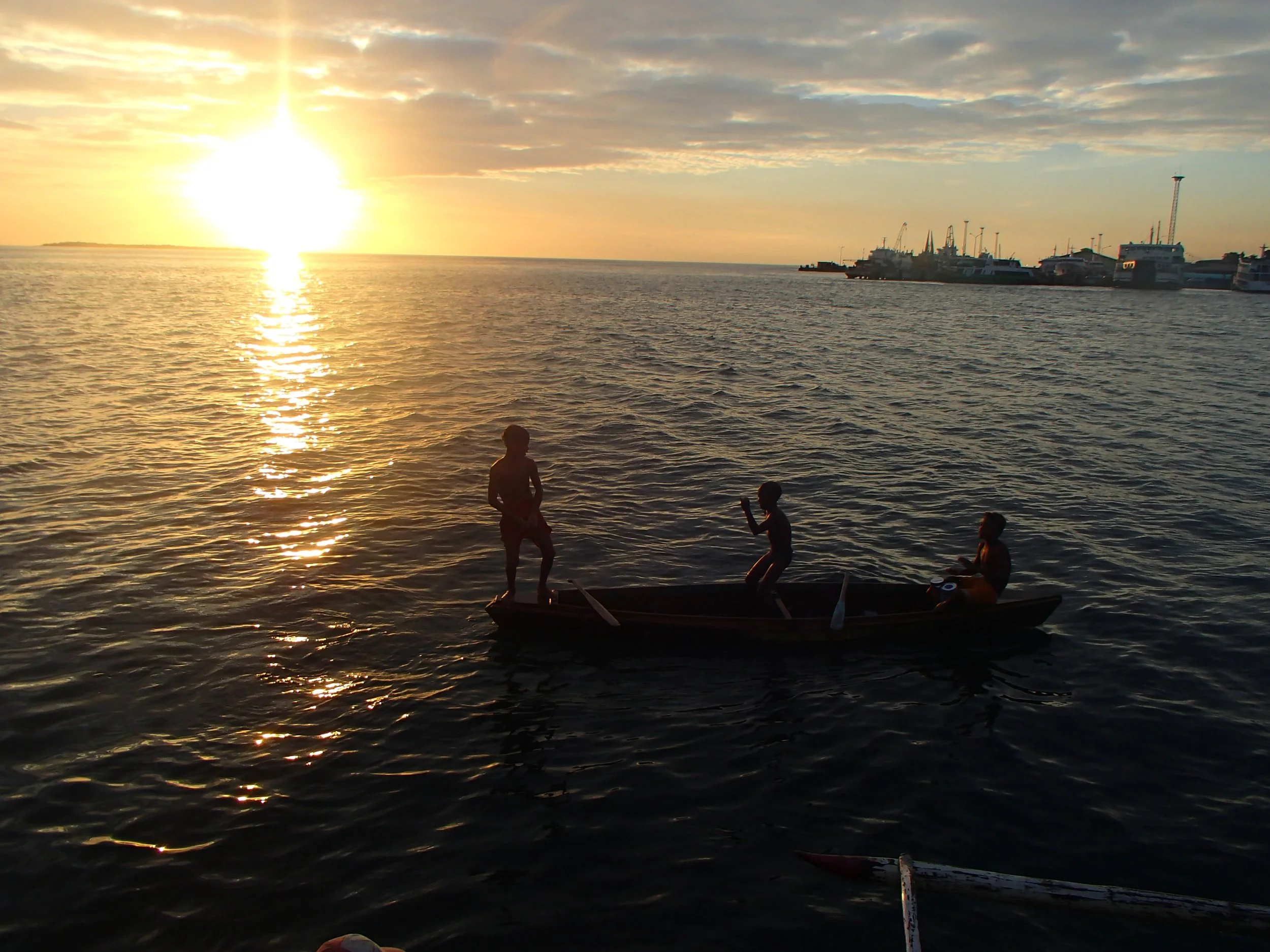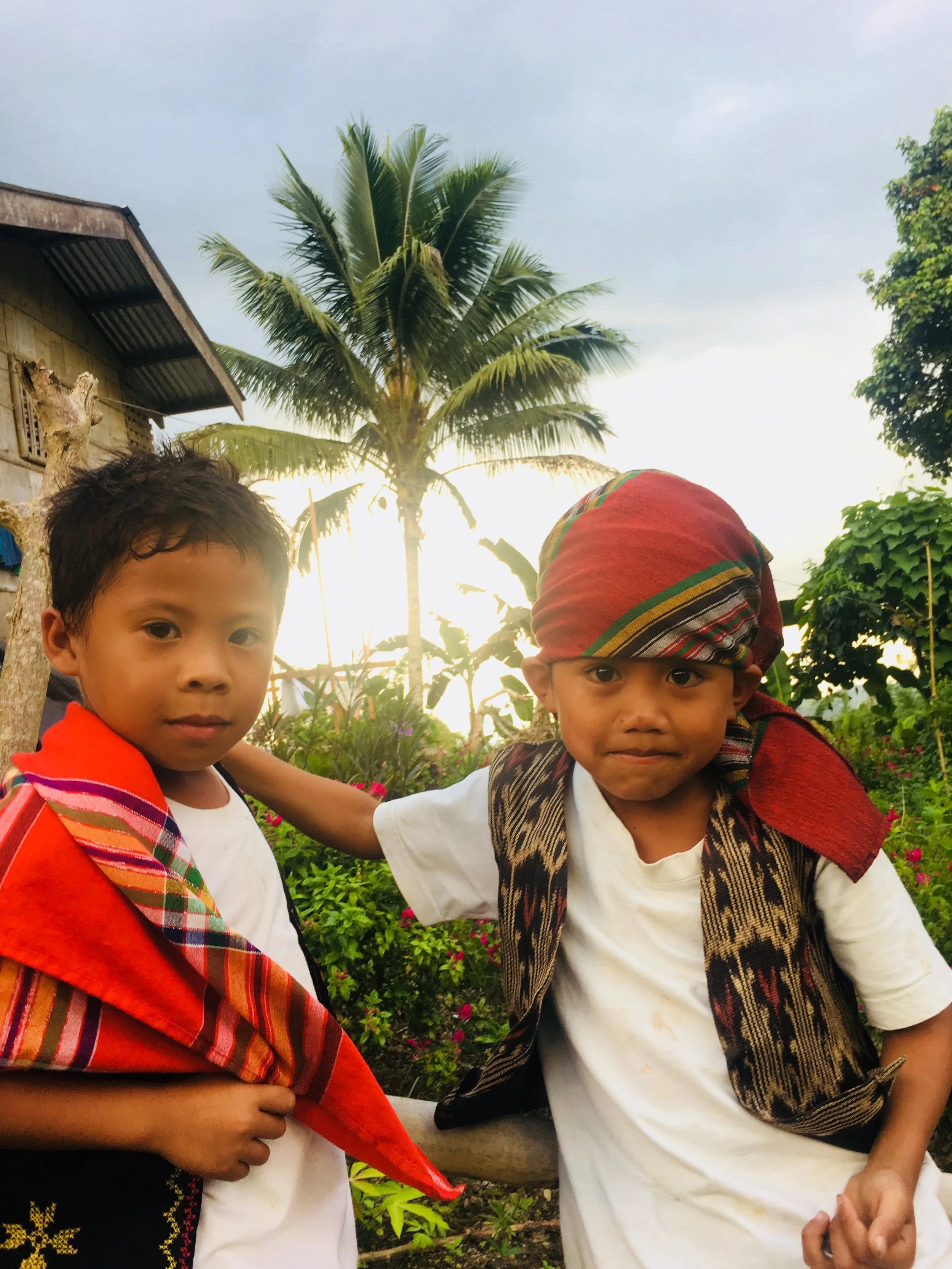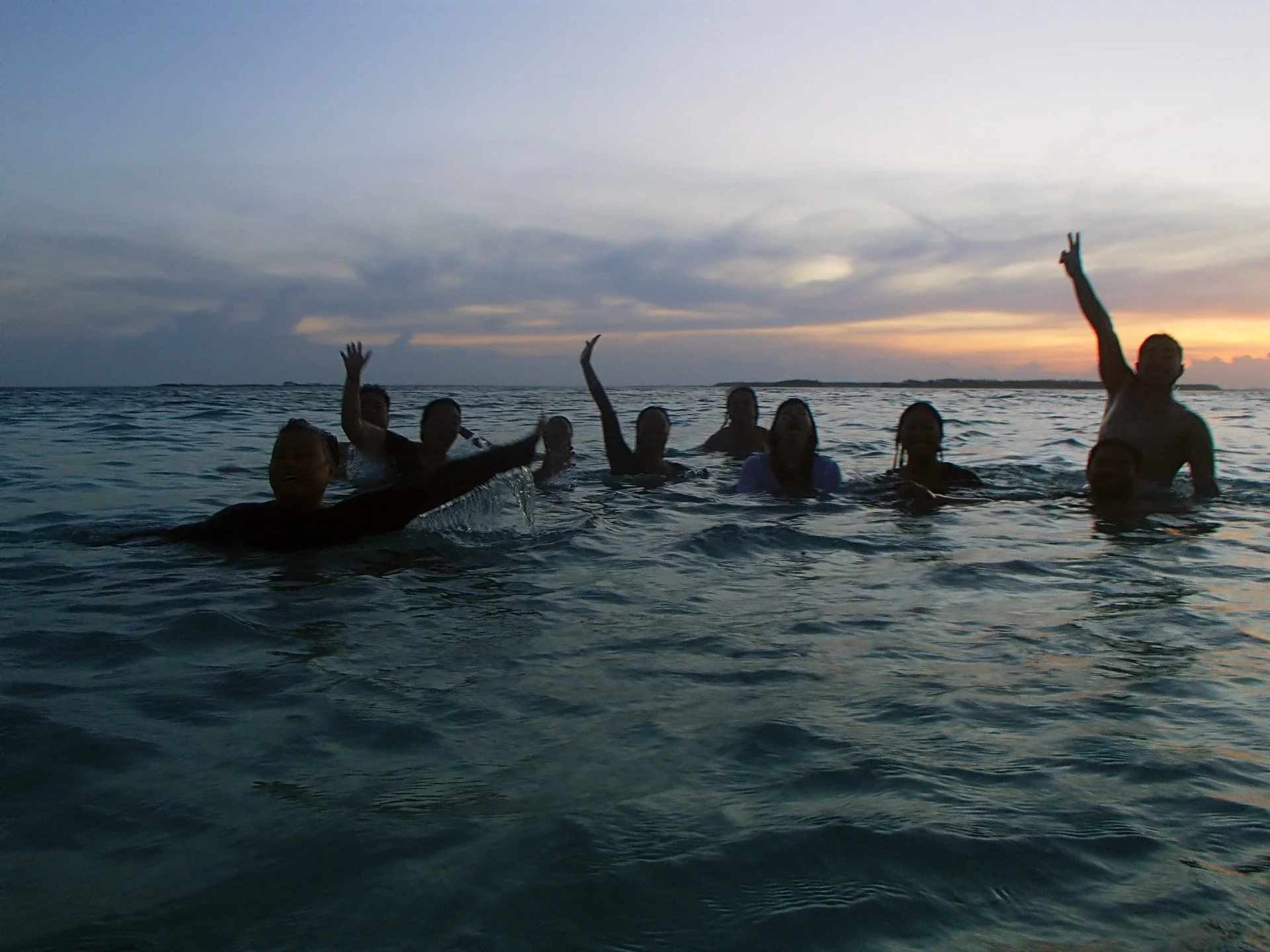The Passage Vessel
by Aimee Amparo
Tabawan, Tawi Tawi, Tribu Tur 2018/ Photo by: Claudine Del Rosario
At Ipat, the boat rings in the beginning and end of the ceremony signaling a permeability between worlds. Strung on two ropes secured to the ceiling, it hangs above the altar reaching down to about my head. It is a small replica, but looks lovely and formidable. Within this boat lies the reason for our presence here in this room and symbolizes the path of our history. We are a peoples of intricately diverse culture from our families & communities within our barangay to each respective island defining the archipelago in which we are all connected by a body of water that has long been navigated by a boat.
Cotabato City, Tribu Tur 2018
I came to this ceremony to feel closer to an immense essence that exists far beyond the boundaries of my body. I prayed that the practice would ignite some recollection. From where I’m sitting cross-legged in the center of the small room where the ceremony is held, I am instructed to move to the front of the room. There, our ritual guide holds their space on the floor upon a dazzling cushioned shrine amongst rows of elaborate ritual objects like embroidered and silky malong and blouses, blades, incense burners lifting smoke through the air, coconuts, food & drink, and palm leaves. We are instructed to swing the colorfully adorned 2-foot wooden boat back and forth. We heed the instruction and form into a line shaped around the perimeter of the room. We take turns swinging the vessel multiple times to initiate the beckoning of the spirits who might choose to appear in this space carefully prepared for their manifestation. I take the boat into my hands. I close my eyes and I see the ocean.
Cotabato City, Tribu Tur 2018
My mother used to warn me that the ocean was a dangerous place. “Anak, don’t go too deep,” she would say, the soft tone in her voice cautioning the vastness of the water’s mysteries as if the entire Pacific Ocean was in itself an estranged continent; unfamiliar, perilous, unpredictable, and much too far outside of ourselves.
Visiting the fishing pier weekly with my dad on Sunday mornings, I would watch the different shades of blue-green aqua shimmer from the great distance of the pier’s concrete columns and imagine the feeling of joining the unknown and plunging into the cold profundity. While watching the dance of light and water, my mind would wander. I’d often think of one of my favorite bedtime stories that my father would tell me and my younger brother. It was the account of his recruitment into the Navy; the grueling application and tryout process, the fear of being denied, the excitement of passing the written test, the triumph of being accepted, and the grief of saying goodbye to his mother who had tears of both heartbreak and joy. He found an opportunity to pursue a higher education and leave the toil of farm life at the exchange of abandoning everything that he knew and everyone he loved to enter an unfamiliar world that would not embrace him like his mother did. He got on that boat and later boarded another boat in National City where he would meet my mother. Me and my brother would be brought into the world because of those boats.
Bongao, Tribu Tur 2018/ Photo by: Christine Joy Ferrer
Within our history and current movements as diasporic peoples, boats expand life and bounty. Unifying two or more worlds, they possess the ability to both change culture and bear the endurance of its tradition. Boats have even carried suffering, greed, and subjugation and from hundreds of years of occupation to now, colonialism still resounds deeply from within the systems that make up our social structures. But boats can bring insight and radical change charged by exploration, compassion, and transformative thought. They bring the spirit world and material world together unifying all of us in the multiplicity of divine manifestation. We have been shaped by the ideas and objects that boats have brought or have taken away.
T'boli children in Lake Sebu, South Cotabato Tribu Tur 2018. Photo credit: Aimee Amparo
Cotabato City, TribuTur 2018
Tawi Tawi, Tribu Tur 2018
Much like our bodies, boats will carry and amplify energy through space delivering whatever intention is put within them. That intention is magnified by yearning gathered during a life’s long journey and the rocking, cradling, and purifying properties of salt water. During Ipat, those long mornings on the fishing pier I spent daydreaming as a child come back to life as I plunged into that profound ocean that I’ve always carried within myself.











